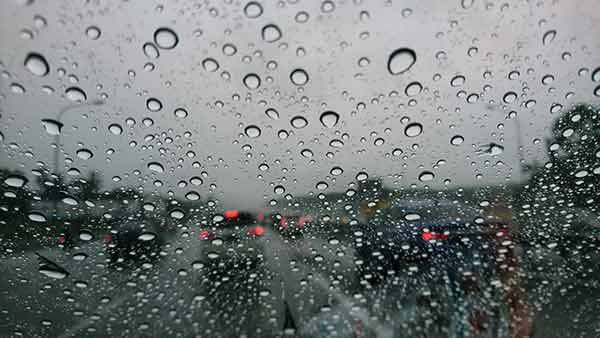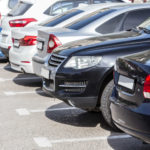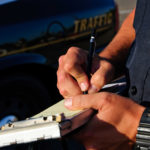Table of contents
- Can I still sue if the weather caused the crash?
- What Is a Weather-Related Car Accident?
- How Many Car Accidents Are Due to Weather Conditions in Florida?
- Common Weather Hazards in Florida
- Are Weather-Related Accidents “At Fault”?
- Florida Insurance Rules in Accidents Caused by Bad Weather
- What to Do After a Weather-Related Crash in Florida
- What Evidence Matters in an Accident Due to Poor Weather Conditions
- Proving Fault in Bad Weather Car Accident Claims
In Florida, the weather can flip in an instant. One minute, the roads are clear, the next, you’re fighting a downpour that makes your wipers useless. Hurricanes flood highways, and fog on I-95 or Alligator Alley can cut visibility to almost nothing. These aren’t just hassles; they’re dangerous conditions that change lives in seconds.
If you’ve been in a wreck during bad weather, you’ve likely wondered: “Can anyone be held responsible, or will the insurance company just blame the storm?” Weather may play a role, but it doesn’t erase a driver’s duty to adjust and drive safely.
Can I still sue if the weather caused the crash?
Yes. Even when storms, fog, or sudden downpours play a role, you can still pursue a claim if another driver failed to act with reasonable care. Florida law holds drivers responsible for adapting to conditions such as slowing down, turning on headlights, or leaving more distance on slick roads. When someone ignores those responsibilities and causes a crash, the weather doesn’t shield them from liability.
What Is a Weather-Related Car Accident?
A weather-related car accident is any crash where environmental conditions contributed, such as heavy rain, strong winds, slick pavement, fog, or even the dim light of an overcast afternoon. These accidents are common in Florida because storms roll in quickly and leave drivers little time to adapt.
But here’s the part most people don’t realize: weather is rarely the only cause. A driver who speeds through rain, ignores headlights in fog, or follows too closely on slick pavement is still responsible for the choices they made. Florida law is clear on this. Negligence doesn’t disappear just because the sky opened up. Every driver is expected to adjust, and when they don’t, that’s when liability comes into play. Moreover, these types of crashes aren’t rare in Florida.
How Many Car Accidents Are Due to Weather Conditions in Florida?
The scope of the problem is bigger than most drivers realize. In 2023, Florida reported 395,175 codable crashes, and almost 46% of them, 180,643 accidents, were weather-related. Rain was the biggest factor, contributing to more than 71,000 crashes on its own. Fog and smog added over 3,300 wrecks, while cloudy skies and low visibility accounted for more than 104,000 collisions. Behind those numbers are specific weather conditions that drivers in Florida face every day.
Common Weather Hazards in Florida
Florida roads are uniquely vulnerable to severe weather. Drivers here face conditions that would be rare elsewhere, but are part of daily life in our state: The next dangerous weather events are common in our state.
- Heavy rain and hydroplaning. Sudden downpours turn highways into slick sheets. Cars lose grip, brakes lock, and a routine drive can turn into a pileup.
- Fog on I-75’s “Alligator Alley.” Visibility can drop to just a few feet, making one wrong move enough to trigger chain-reaction crashes.
- Hurricanes and tropical storms. Beyond the obvious wind and flooding, these storms leave behind debris, downed traffic signals, and standing water that cause accidents long after the storm passes.
- High winds. Strong gusts push vehicles, especially trucks and motorcycles, out of their lanes, often into surrounding traffic.
- Cloudy, low-light conditions. Even without rain, reduced visibility makes it harder to spot brake lights or lane changes in time.
Even with these hazards, Florida law doesn’t excuse careless driving. The next question is how liability is decided when the weather plays a role.
Are Weather-Related Accidents “At Fault”?
Bad weather doesn’t erase responsibility. In Florida, drivers are expected to adjust to conditions, whether that means slowing down, using headlights in fog, or leaving extra space in heavy rain. When they don’t, and a crash happens, that’s negligence.
The law is clear. Since 2023, Florida has used a modified comparative negligence rule. If the other driver is more than 50% responsible for the accident, you can pursue damages. But if you’re found over 50% at fault, your recovery is barred.
This rule matters in weather-related wrecks because insurers often push the idea that storms alone caused the crash. Many of our clients come to us after being told by an insurance company that “no one is at fault” because of bad weather. They call it an “act of God,” hoping it shields their client. In reality, courts rarely accept that argument if the driver made reckless choices in adverse weather conditions.
Florida Insurance Rules in Accidents Caused by Bad Weather
Even when weather conditions impact a car accident claim, your first layer of protection is Personal Injury Protection (PIP). Every Florida driver is required to carry it, and it covers up to $10,000 in medical expenses and lost wages, no matter who caused the accident. But PIP has limits. Serious injuries like fractures, permanent scarring, or lasting disability often push victims past that cap quickly. When that happens, you can pursue a claim against the at-fault driver to recover the full scope of your losses.
Here’s where the frustration comes in. Insurance companies often argue that the weather, not their driver, caused the crash. Their goal is to minimize payouts or deny them altogether. For victims, that means added stress at a time when medical bills and car repairs are already piling up. And here is knowing that what you do in the moments after a crash can make or break your claim.
What to Do After a Weather-Related Crash in Florida
Moments after a car crash, confusion takes over. The rain is still pouring, cars are stopped in every lane, and your phone is buzzing. In that chaos, the steps you take matter for both your health and your claim:
- Call 911. Get law enforcement on scene so there’s an official record of the conditions and the crash.
- Seek medical care right away. Even if injuries feel minor, Florida’s PIP law requires treatment within 14 days to qualify for benefits.
- Document the weather. Photos and videos of rain, fog, standing water, or damaged roadways can be powerful evidence.
- Exchange information, but avoid admitting fault. Keep it limited to driver and insurance details.
- Notify your insurer, but stay cautious. Decline recorded statements until you’ve spoken with an attorney.
- Call a lawyer immediately. Insurance adjusters often arrive at these cases with a ready-made “act of God” defense. An attorney can counter it before your claim gets buried.
What Evidence Matters in an Accident Due to Poor Weather Conditions
Every detail counts after a storm-related wreck. Evidence helps cut through the insurance company’s excuses and shows what really happened. Start with what you can collect at the scene:
- Photos and videos of road conditions, visibility, and damage to vehicles.
- A police report that notes rain, fog, or other hazards.
- Contact information and testimony from witnesses.
- Weather service records show what conditions were at the exact time of the crash.
These pieces build the foundation of your claim. The next shows how that evidence proves another driver’s negligence.
Proving Fault in Bad Weather Car Accident Claims
Weather may set the stage for a crash, but it’s the driver’s choices that decide who is responsible. Florida law makes this clear: every driver must adapt to conditions. That means slowing down in heavy rain, turning on headlights when visibility drops, and leaving more space when roads are slick. When drivers ignore those duties, it’s negligence, and they are liable for the accident, even if a storm was involved.
Proving that negligence takes more than just pointing to bad weather. Accident reconstruction experts can show how speed, braking, or loss of control led to the wreck. Traffic footage and witness statements can confirm whether headlights were on or if a driver followed too closely. These details separate a true “act of God” from avoidable human error.
Common signs of negligence in weather-related crashes include:
- Choosing to drive through dangerous conditions.
- Speeding or failing to slow down for rain or fog.
- Taking turns too quickly on wet pavement.
- Following too closely without leaving enough room.
- Failing to use headlights when visibility is poor.
- Driving with worn tires, weak brakes, or ineffective wipers.
Insurance companies often argue that the storm caused the accident and no one is to blame. But with the right evidence and legal team, you can show that, given the weather conditions, it was the other driver’s careless decisions that left you injured.
If your crash happened in heavy rain, thick fog, or during hurricane season, don’t let the insurance company dismiss it as bad luck. Nearly half of Florida’s accidents in 2023 involved weather, and we’ve seen firsthand how insurers twist those numbers to avoid paying. Our car accident lawyers know how to fight back, prove negligence, and secure the compensation you need for medical care, lost wages, and the disruption to your life. With offices across the state, including West Palm Beach, Miami, Fort Lauderdale, Tampa, Fort Myers, Orlando, Port St. Lucie, and more, our team understands the unique challenges of Florida’s drivers and insurance claims.
Call us today for a free consultation. We’re available 24/7, ready to step in the moment you need us.




